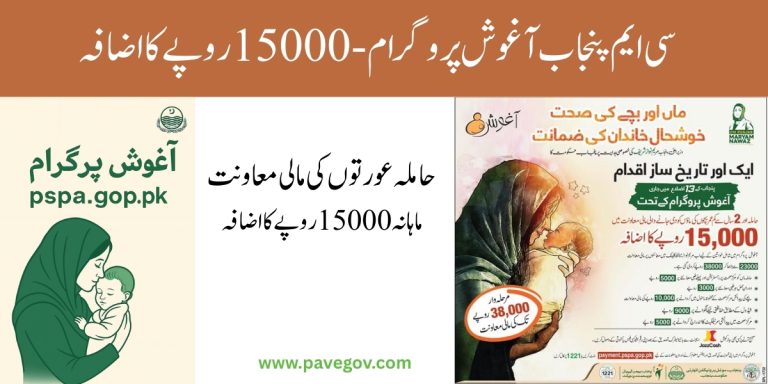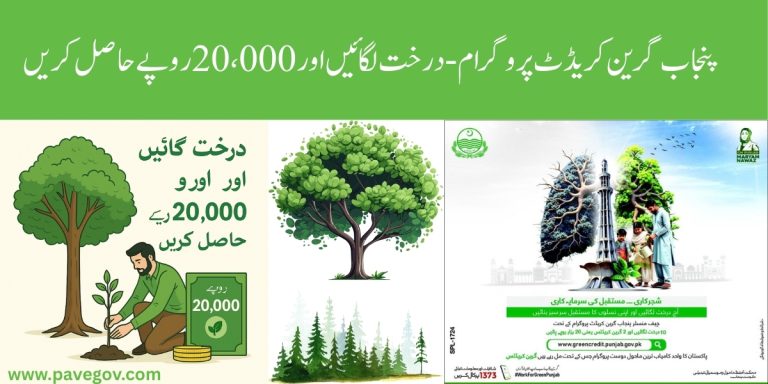Benazir BISP Hari Card Scheme 2025 Online Registration
The Government of Sindh has introduced the Benazir Hari Card Scheme 2025 to provide relief and financial assistance to small and medium farmers across the province. This new scheme is designed to reduce farming costs, improve crop production, and protect farmers in times of natural disasters. With this program, the government aims to bring modern farming techniques within the reach of local farmers and ensure food security for the country.
The Benazir Hari Card works much like a farmer’s support card, giving eligible farmers subsidies, direct financial aid, and access to modern facilities like solar-powered irrigation systems. The government has partnered with Sindh Bank to issue and distribute these cards, making the process smooth and transparent. Check How to Track PAVE Scheme 2025 Application and Delivery Status
What is the Benazir Hari Card Scheme?
The Benazir Hari Card is a dedicated support card that will be issued to registered farmers of Sindh. The card acts as a direct link between the government and farmers, ensuring that subsidies and aid reach the right people without delays or corruption.
This scheme is inspired by the Benazir Income Support Programme (BISP), which supports poor households. Similarly, the Hari Card focuses on farmers by offering:
- Subsidies for agricultural equipment and inputs.
- Financial relief in case of floods, droughts, or other natural calamities.
- Assistance in switching to solar irrigation systems to reduce dependency on expensive electricity and diesel.
How Many Farmers Will Benefit?
The Sindh Agriculture Department has already verified more than 80,000 farmers across the province. The rollout plan is as follows:
- 50,000 Hari Cards will be issued by the end of this month.
- An additional 50,000 cards will be handed out every 20 days.
This phased distribution means that within a few months, thousands of farmers will start using their cards and receive financial help directly from the government.
Key Benefits of the Benazir Hari Card Scheme
The scheme is packed with multiple benefits aimed at supporting the farming community. Some of the main features include:
1. Subsidies on Agricultural Inputs
Farmers will get discounts on essential farming tools, seeds, fertilizers, and irrigation systems. This reduces the financial burden and helps improve crop yields.
2. Solar-Powered Irrigation
A major highlight of this scheme is solar power support. Farmers with 5 to 25 acres of land can apply for solar panels to be used in drip irrigation systems.
- Around 295 solar units will be installed.
- These units will cover about 4,000 acres of farmland.
- 80% of the cost will be paid by the government.
- Farmers will only contribute 20% of the cost.
This step will not only save electricity and fuel costs but also conserve water resources, making farming more sustainable.
3. Direct Financial Assistance
In case of floods, heavy rains, or other natural disasters, the government will send emergency financial aid directly to the Hari Card holders. This ensures that farmers can recover faster without falling into debt.
Eligibility Criteria Who Can Apply?
Not every farmer is eligible for this scheme. The government has set clear criteria to make sure that support reaches the most deserving. You can apply if:
- You are a permanent resident of Sindh.
- You own 5 to 25 acres of farmland.
- You are a registered farmer with the Agriculture Department.
- You are interested in subsidies and solar energy support programs.
This scheme is mainly targeted at small and medium farmers, as they are the most vulnerable to high costs and natural disasters.
How to Apply?
Farmers need to submit their applications at the Agriculture Department Office in Hyderabad. The last date to apply is 20 September 2025.
Applicants should make sure they prepare all required documents before the deadline to avoid rejection.
Required Documents for Registration
To register for the Benazir Hari Card Scheme, applicants must provide the following:
- A valid Computerized National Identity Card (CNIC).
- Land ownership documents (Fard or Malikiat).
- Proof of residence in Sindh.
- One passport-size photograph.
- An active mobile number registered in your name.
The staff at the registration centers will verify the documents and confirm the farmer’s eligibility.
Expected Online Registration Process
The Sindh government is planning to launch an official website for online applications. While details are yet to be released, the expected process will be:
- Visit the official Sindh government portal (to be announced).
- Fill out the online registration form with personal and land details.
- Upload scanned copies of all required documents.
- Submit the application form.
- Wait for SMS confirmation after verification.
- Collect the Hari Card from the nearest Sindh Bank branch once approved.
Until the online system is live, all applications must be submitted in person at the Hyderabad Agriculture Office.
Cost for Farmers
For solar irrigation systems, the farmer’s contribution will be only 20% of the total cost. The remaining 80% will be funded by the government. This cost-sharing method makes it affordable for farmers to adopt modern farming methods without financial stress.
Future Plans of the Scheme
The Benazir Hari Card is just the beginning. The PPP leadership has already promised the introduction of a Kisan Card, modeled after BISP, which will expand the scope of farmer support even further. The Hari Card is the first step toward this vision and shows the government’s commitment to uplifting the agricultural sector.
Conclusion
The Benazir Hari Card Scheme 2025 is a golden opportunity for farmers in Sindh. With subsidies, solar irrigation systems, and direct financial help, this program can transform the future of agriculture in the province.
Farmers who meet the criteria should prepare their documents and apply before 20 September 2025 to benefit from this initiative. By taking advantage of this scheme, farmers can reduce their costs, increase productivity, and secure their livelihoods against disasters.





